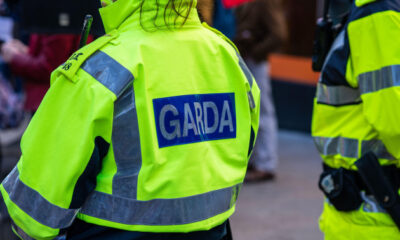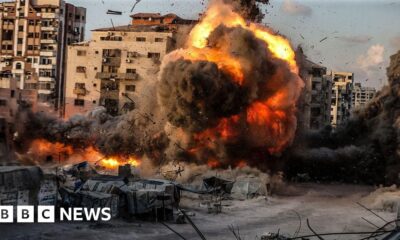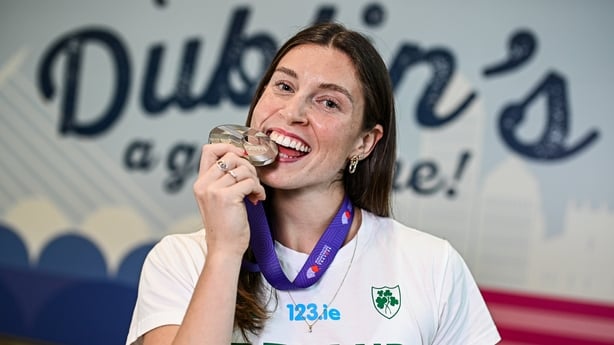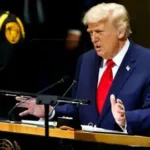Breaking News
No security guarantees but ‘weapons, friends’ – Zelensky
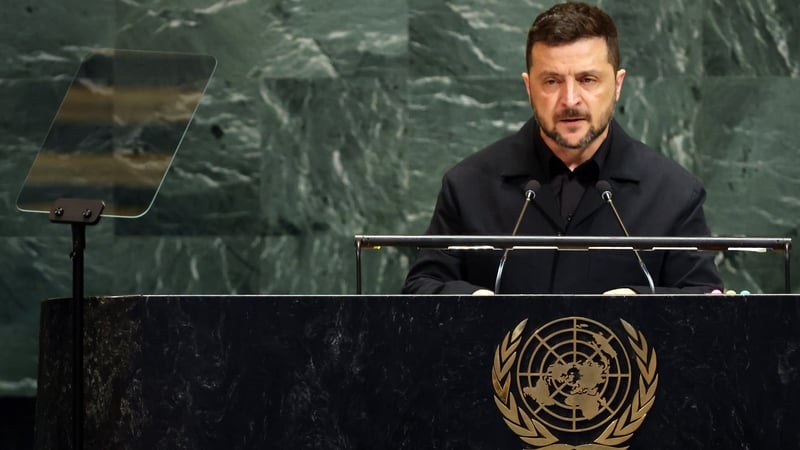
Read more on post.
There are no security guarantees apart from “weapons and friends,” Ukrainian President Volodymyr Zelensky has told the United Nations General Assembly.
“We are now living through the most destructive arms race in human history, because this time, it includes artificial intelligence,” he said.
“The 21st Century isn’t much different from the past,” he told delegates, in his fourth address to the General Assembly as wartime leader.
“If a nation wants peace, it still has to work on weapons,” he said, adding, “it’s sick, but that’s the reality,”
He said global institutions had become weak and could not stop war. It was not international law or cooperation, he said, but weapons that “decide who survives”.
Mr Zelensky met the US President Donald Trump yesterday on the sidelines of the United Nations General Assembly.
After that meeting, the US president posted on social media that he believed Ukraine could win all of its territory back, in a major shift in his stance on the war.
Previously, Mr Trump had suggested Ukraine would have to concede land to Russia in a peace deal, telling Mr Zelensky during an angry row in the Oval Office in February that he didn’t “have the cards”.
Watch: Zelensky says world living through ‘most destructive arms race’ in history
“You know perfectly well international law doesn’t work fully unless you have powerful friends who are truly willing to stand up for it,” Mr Zelensky said, “and even that doesn’t work without weapons”.
He said that stopping Russia now was “cheaper than wondering who will be the force to create a simple drone carrying a nuclear warhead”.
“So we must use everything we have together to force the aggressor to stop, and only then do we have a real chance that this arms race will not end in catastrophe for all of us”.
Mr Zelensky said that Ukraine had been forced to build its own drones to protect “our right to life”.
“Ten years ago, war looked different, and no one imagined that cheap drones could create dead zones, areas stretching for dozens of kilometres where nothing moves, no vehicles, no life,” he told delegates.
“People used to imagine that only after a nuclear strike,” he went on, “now it’s reality, mass produced, simple drones and without AI – yet”.
“Ukraine doesn’t have the big fat missiles dictators love to show off in parades, but we do have drones that can fly up to two 3000km”.
He said AI-operated drone warfare was just a matter of time.
The Ukrainian leader said that Ukraine was willing to export its weapons technology to other nations.
“We are ready to make our modern weapons become your modern security, your modern weapon,” he said, adding, “these are powerful systems tested in a real war when every international institution failed”.
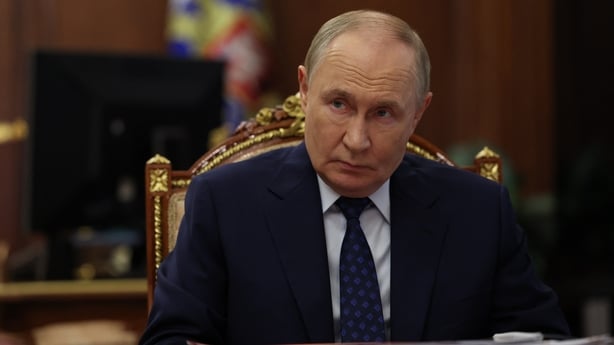
Russia vows to continue offensive, rejects idea Ukraine can retake land
Meanwhile the Kremlin said it would press on with its military offensive in Ukraine and rejected Mr Trump’s claim that Kyiv’s army could retake territory it had seized.
Moscow also pushed back on Mr Trump’s characterisation of Russia as a “paper tiger”, a day after the US president dismissed Russia’s army and said he could see Ukraine winning back every inch of land captured by Russia’s forces.
Mr Trump’s remarks were a major pivot in his stance on the three-and-a-half-year conflict, which he had at one point boasted he could end within hours.
But the Republican has for weeks voiced mounting frustration with Mr Putin for refusing to halt his offensive.
“We are continuing our special military operation to ensure our interests and achieve the goals” set by Mr Putin, said Kremlin spokesman Dmitry Peskov, using Moscow’s term for its assault on Ukraine.
“We are doing this for both the present and the future of our country. For many generations to come. Therefore, we have no alternative,” he added in a radio interview.
Russia launched its all-out offensive on Ukraine in February 2022, when its forces tried to capture the capital Kyiv, and Mr Putin publicly called for Mr Zelensky to be toppled.
The conflict has since killed tens of thousands of people, devastated much of eastern and southern Ukraine and forced millions to flee their homes.
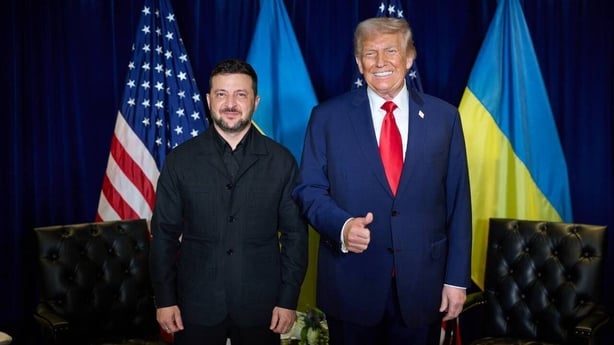
‘Mistaken’
Moscow’s army controls around one-fifth of Ukraine’s territory, including the Crimean peninsula annexed in 2014, and has been grinding forwards on the battlefield, with both armies suffering immense losses.
Yesterday, Mr Trump had dismissed Russia’s military prowess and mocked its inability to quickly beat Ukraine.
In a post on Truth Social, he said Ukraine may “be able to take back their Country in its original form and, who knows, maybe even go further than that”.
Russia rejected that notion.
“The idea that Ukraine can recapture something is, from our point of view, mistaken,” Mr Peskov told reporters.
Russia also bristled at the accusation it was weak.
“The phrase ‘paper tiger’ was used in relation to our economy,” Mr Peskov said.
“Russia is more associated with a bear. And paper bears don’t exist. Russia is a real bear,” he added.
He did concede, however, that Russia’s economy – slowing after two years of rapid growth and with stubborn inflation – was “experiencing tensions and problems”.
Moscow’s finance ministry proposed raising the sales tax from next year to help cover the costs of the offensive, which has pushed Russia into a budget deficit.
Kyiv and Washington want to cut off revenues from Moscow’s vital energy exports to further squeeze the Kremlin.
Ukraine has stepped up attacks on Russian energy sites in recent months, with its drones hitting a major Russian oil refinery in the central Bashkortostan region overnight, triggering a large fire.
A Ukrainian drone attack also killed two people in the Russian port city of Novorossiysk, just east of the annexed Crimean peninsula, the local Russian governor said.
‘Zero’ results
Mr Peskov also dismissed claims that Russia breached NATO’s airspace as “hysteria”, after Mr Trump said the allies should shoot down Russian jets if they violate their territory.
NATO countries say multiple Russian fighter jets and drones have violated European member states’ airspace in recent weeks, accusing Moscow of testing the alliance’s boundaries.
With peace progress on Ukraine stalled, Mr Peskov said a broader rapprochement between Moscow and Washington, ushered in when Mr Trump returned to the White House in January, has yielded “close to zero” results.
Read the latest stories on Russia’s invasion of Ukraine
Mr Zelensky has hailed Mr Trump’s apparent change of position as a “big shift”, though it is unclear if the US leader will follow through with concrete steps, such as more sanctions on Russia.
On the streets of Kyiv, there was scepticism.
“It’s just another opinion from Mr Trump, which changes every hour,” 33-year-old Bogdan Tkachuk said.
Svitlana Fetisova said she would want to see “more help, more action, not just words, because Ukraine is suffering”.
“I really want to believe that this is true and that finally the country responsible for the balance of peace in the whole world will turn to us,” she said.
Breaking News
Remains found in field linked to ‘no body’ murder case
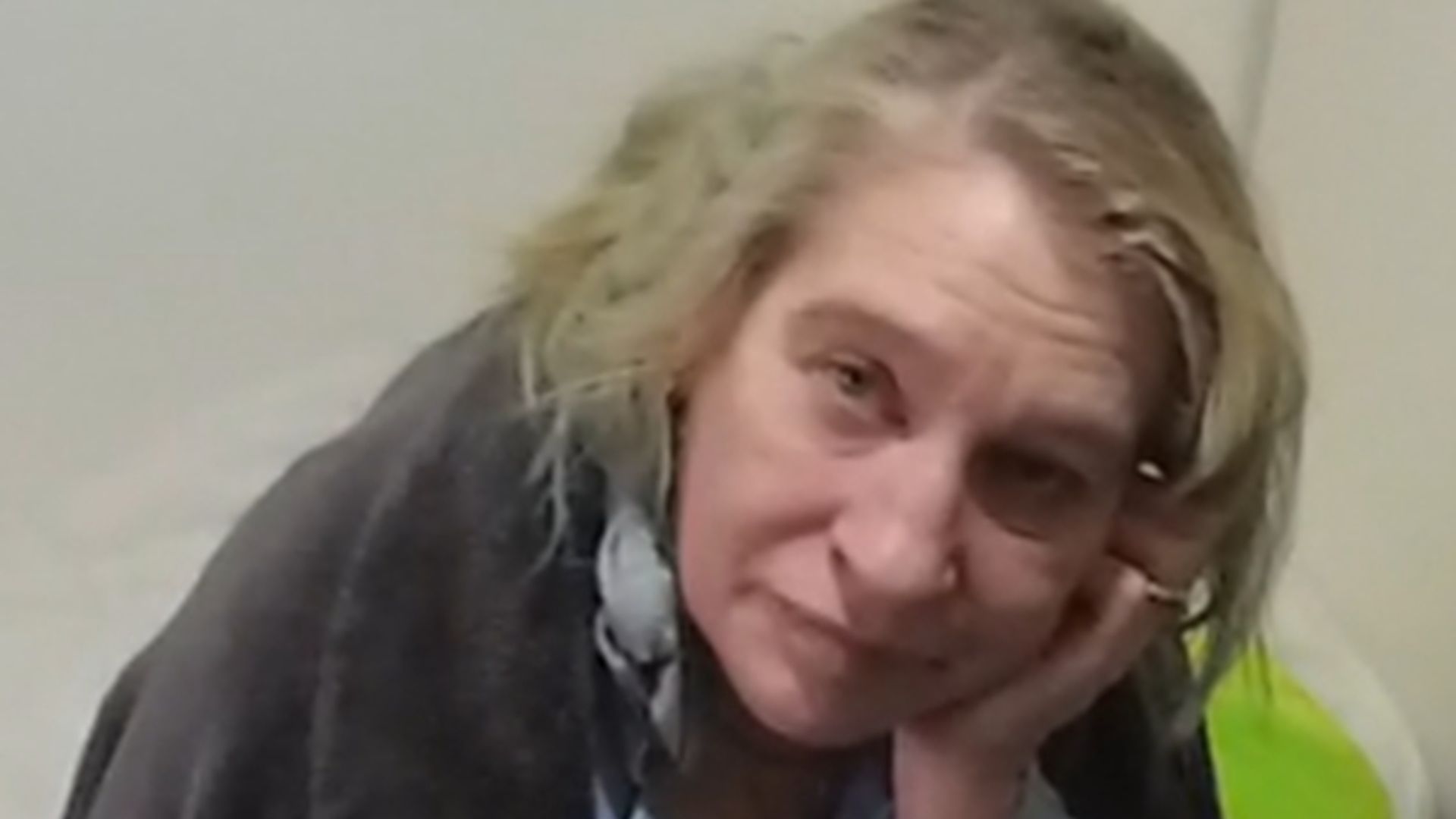
This post was originally published on this site.

Human remains found in a field have been confirmed as that of missing woman Julie Buckley – last seen alive eight months ago.
Karl Hutchings, 48, pleaded guilty at Cambridge Crown Court last week to the murder of Ms Buckley, but at the time of his plea, her body had yet to be found.
Police launched a “no body” murder investigation back in February after finding blood at her home in Christchurch, near Wisbech – and on Wednesday, police confirmed that remains found in Wimblington, Cambridgeshire, were in fact those of the 55-year-old.
It came after Hutchings’ defence team gave information to police about a potential burial site in the area.
Read more from Sky News
Shooting at immigration centre
How a tractor, lifeboat and ambulance crew saved my life
Donald Trump is ‘racist, sexist and islamaphobic’
Detective Chief Inspector Richard Stott of Cambridgeshire Police, said: “Julie’s family have been made aware of the post-mortem results, which were inconclusive on the cause of death, and are being supported by specially trained officers.
“Our thoughts are with them at this very difficult time.”
Police believe Hutchings killed Ms Buckley on 30 January this year, then used her bank cards and sold possessions.
Officers from three forces had worked together to try to find her after she went missing, but eventually declared the case a ‘no body’ murder investigation.
Hutchings is next due in court on 24 October.
Breaking News
Policy decision on future of data centres faces further delay

Read more on post.
The energy regulator has signalled a further possible delay in a long-awaited decision on the future of new data centres.
Restrictions on the connection of data centres to the electricity grid have effectively acted as a moratorium on new development since 2021.
They were introduced because of the enormous strain data centres were placing on electricity supply in the key areas they sought to locate.
A new policy setting out where and how the centres can be set up was thought to be imminent.
However, the Commission for Regulation of Utilities (CRU) was due to tell the Oireachtas Committee on Climate, Environment and Energy on Wednesday that the date was subject to change.
“The CRU originally indicated an intention to take a final decision in Q3/Q4 of this year,” it said in a statement prepared for the meeting.
“Given the significant number of responses and the balance of priorities facing the decision, the anticipated publication date is therefore subject to fully addressing the complexity of the detailed submissions received.”
Data centres have become a hugely controversial issue as they already use more than 20 per cent of all electricity generated in Ireland and their demand is forecast to grow significantly.
Energy experts have expressed concern that all new renewable energy generated in recent years has been used up by data centre expansion rather than in replacing existing fossil fuel use.
Climate experts are alarmed that a draft new policy published by the CRU earlier this year proposed allowing new data centres so long as they generated their own electricity.
Critics of that proposal said it would likely mean data centres installing on-site gas generators – a backward step in the aim to decarbonise industry.
In its statement, the CRU acknowledged there were competing interests.
“The aim of the proposed decision is to provide a pathway … which addresses risks in relation to security of supply and network constraints while minimising, where possible, potential negative impacts on national renewable energy targets and carbon emissions,” it said.
Separately, the CRU also highlighted the growing problem of gas and electricity bills arrears.
“The CRU’s published data has shown that arrears levels are trending at historically high levels, both in terms of the value of overall arrears and the average value of a customer’s account in arrears,” it said.
Protections for customers in arrears, it said, would be maintained and the winter disconnection moratorium would stay in place.
However, it said this policy did not necessarily solve the underlying problem.
“The data has shown that longer disconnection moratoria, in addition to longer repayment periods, does not benefit customers as customer debt levels can continue to increase should payments not be made.”
Breaking News
Hero’s welcome home for O’Connor after ‘amazing year’
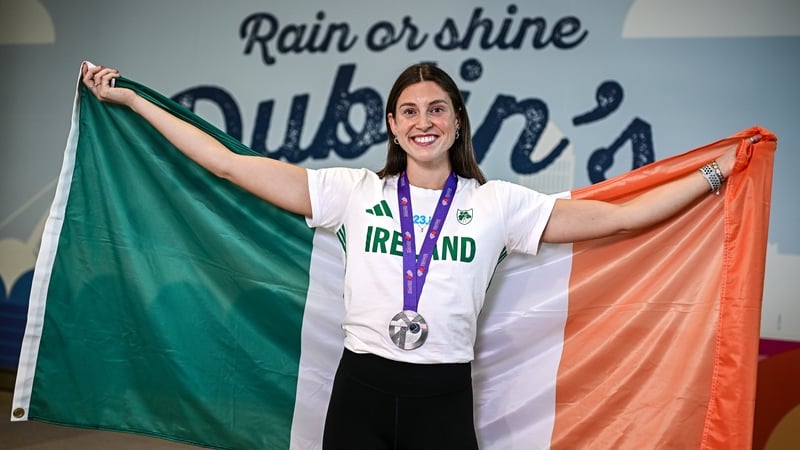
This post was originally published on this site.
Kate O’Connor is back in Ireland following her historic silver medal at the World Athletics Championship in Tokyo.
O’Connor was greeted by family and friends as she arrived in Dublin Airport.
The 24-year-old had initially planned to stay in Japan for another few weeks, but decided to cut her trip short to return home and recover from a knee injury she sustained while competing in the long jump.
Speaking on RTÉ’s News at One, she said returning home was a precaution to make sure she is fit to compete next year.
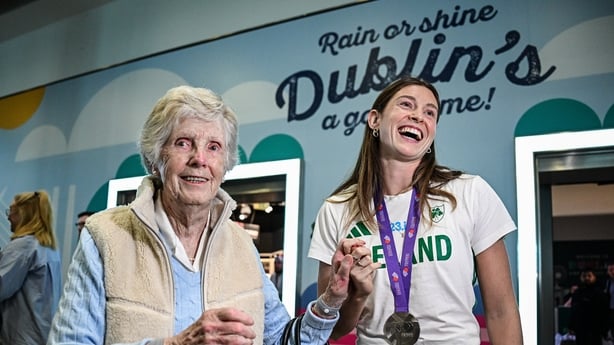
“I’ve got the next six weeks off and we just thought it was the best move for next year, just to get home, get it scanned and just make sure that everything’s okay rather than running around the place on God knows what.
“So, I think it’s okay, I’m walking and I’m fine, but it’s just more of a medical kind of thing, just to make sure everything’s okay,” she said.
The Dundalk athlete said it was great to get a big welcome home after her success in Tokyo.
“When you’re so far away, you’re kind of in your own little bubble. It’s nice to come back and see how much it means to everybody else at home as well,” she said.
Despite picking up a knee injury in the long jump event, Ms O’Connor said she wanted to give everything to make sure she medalled.
We need your consent to load this rte-player contentWe use rte-player to manage extra content that can set cookies on your device and collect data about your activity. Please review their details and accept them to load the content.Manage Preferences
“The days leading up to the competition, I could kind of see like a little bit of hype online and stuff, and I suppose I’ve never really dealt with too much pressure going into a major competition, but I was definitely feeling a little bit going in.
“Friday, I just enjoyed every second of the competition. I had already won three international medals this year, so I’ve already had an amazing year and so my plan was just go in and just enjoy every second, which I did,” Ms O’Connor said.
She added: “And then day two, I was sitting in second place before the long jump, and then I dropped into fourth afterwards.
“So again, I was feeling a little bit of pressure, but I knew I was coming into two very strong events for me.
“I was carrying that knee injury at that point, but there was no doubt in my mind that I wasn’t going to give my absolute 100%.
“Because these medals don’t come around all that often, and I suppose you never know when you’re going to get the opportunity again to win one and I was just never going to let that opportunity pass.”
Ms O’Connor is the first Irish women to win a medal at a major championship in a multi-discipline event.
She is the sixth World medallist for Ireland, following Eamonn Coghlan (gold, 1500m, 1983), Sonia O’Sullivan (gold, 5000m, 1995 and silver, 1500m, 1993), Gillian O’Sullivan (silver, 20km walk, 2003), Olive Loughnane (silver, 20km walk, 2009) and Rob Heffernan (gold, 50km walk, 2013).
-
Breaking News1 day ago
Barack Obama to be conferred with freedom of Dublin at ceremony on Thursday
-
Breaking News1 day ago
Opinion: To be or not to be? Why it is time to drop Shakespeare’s compulsory status in Leaving Cert
-
Culture1 day ago
Taylor Swift’s new cinema outing generates more than €12million in just 24 hours
-
Breaking News1 day ago
Minister rejects proposal to make Shakespeare optional in Leaving Cert English
-
Breaking News1 day ago
Families at risk of homelessness may have another chance to avail of tenant-in-situ scheme
-
Culture1 day ago
Milan Fashion Week 2025: Unmissable shows and Giorgio Armani in mind
-
Politics1 day ago
European Parliament snubs Orbán with vote to shield Italian MEP from Hungarian arrest
-
Travel & Lifestyle2 days ago
The Best Way to See Rome? On a Running Tour at Sunrise


